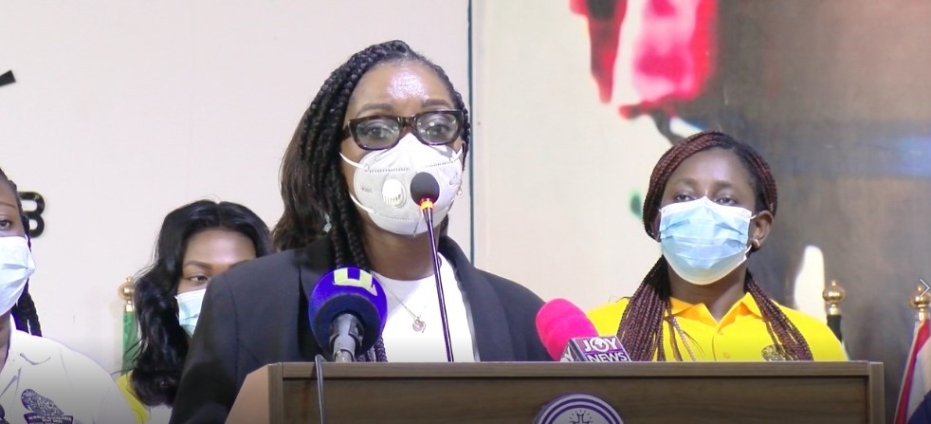In 2019, Ghana began vaccinating children who are up to five years against malaria in some selected regions.
The jab, known as RTS, is the world's first malaria vaccine shown to provide partial protection against malaria in young children.
Two years on, the National Malaria Control Program says about 70 per cent of children who were targeted in the Central, Volta, Upper East Region and parts of the Bono Region had received their first dose as of December 2020.
Programme Manager, Dr Keziah Malm says though the number is quite encouraging, it is important for the children to take all four doses of the vaccines as stipulated.
Speaking at a programme commemorating World Malaria Day on the theme; Zero Malaria - Draw the Line against Malaria, Dr Malm noted; “It is going fairly well but it’s expected, that things that you have to come back in the second year of life you get fewer children being brought.”
“But I think we need to put in more efforts to encourage people to come for these vaccines because this is an intervention which is not harmful,” she explained.
Dr Malm is excited about the improvements the country has made so far in reducing malaria-related deaths as she enumerates the interventions which helped the Program attain such grounds.
She noted that “thankfully the nation has been able to reduce the malaria-related deaths by about 89 percent between 2012 and 2020. We have seen improved reporting so we are recording a little over 300 deaths."
“We have also seen improvements in the number of people who sleep under mosquito nets and again, 95 per cent of all malaria cases are being tested to confirm if it is malaria before medications are given.”
Dr Malm is however cautions despite the gains as she notes “we are still recording confirmed malaria cases in the millions at our Out Patients Departments. Last year we recorded over 5 million confirmed malaria cases and that is a number too many.”
Dr Malm is urging everyone to be involved in the fight to reduce malaria cases in the country. The programme has a 5-year target of achieving zero deaths from malaria and also a desire to see a 50 per cent reduction in the cases being reported in health facilities.
That is why Dr Malm is reiterating “there are interventions that can help us reduce malaria. Let’s all adopt and use these interventions so that we don’t get malaria.”
Those interventions include indoor residual spraying and use of mosquito nets.
As part of the interventions, the National Malaria Control Programme will be distributing mosquito nets to everyone in the country this year to create a barrier between you and the mosquito. When you get one, sleep under it.
Latest Stories
-
Paris 2024: Opening ceremony showcases grandiose celebration of French culture and diversity
2 hours -
How decline of Indian vultures led to 500,000 human deaths
3 hours -
Paris 2024: Ghana rocks ‘fabulous fugu’ at olympics opening ceremony
3 hours -
Trust Hospital faces financial strain with rising debt levels – Auditor-General’s report
4 hours -
Electrochem lease: Allocate portions of land to Songor people – Resident demand
4 hours -
82 widows receive financial aid from Chayil Foundation
4 hours -
The silent struggles: Female journalists grapple with Ghana’s high cost of living
4 hours -
BoG yet to make any payment to Service Ghana Auto Group
4 hours -
‘Crushed Young’: The Multimedia Group, JL Properties surprise accident victim’s family with fully-furnished apartment
5 hours -
Asante Kotoko needs structure that would outlive any administration – Opoku Nti
5 hours -
JoyNews exposé on Customs officials demanding bribes airs on July 29
6 hours -
JoyNews Impact Maker Awardee ships first consignment of honey from Kwahu Afram Plains
7 hours -
Joint committee under fire over report on salt mining lease granted Electrochem
7 hours -
Life Lounge with Edem Knight-Tay: Don’t be beaten the third time
7 hours -
Pro-NPP group launched to help ‘Break the 8’
8 hours

